Companies contributing not only to society but also to the economy
- Does society know the world of the workers of Gureak or Ventas Legaia (KL)? Is your work known? Your working conditions and contributions? In Gipuzkoa there are about 7,000 workers, a workforce that is in an irregular situation. We have spoken with the CEO of Gureak, Iñigo Oyarzabal and Pablo Núñez of KL, as well as with trade union representatives of these two companies.
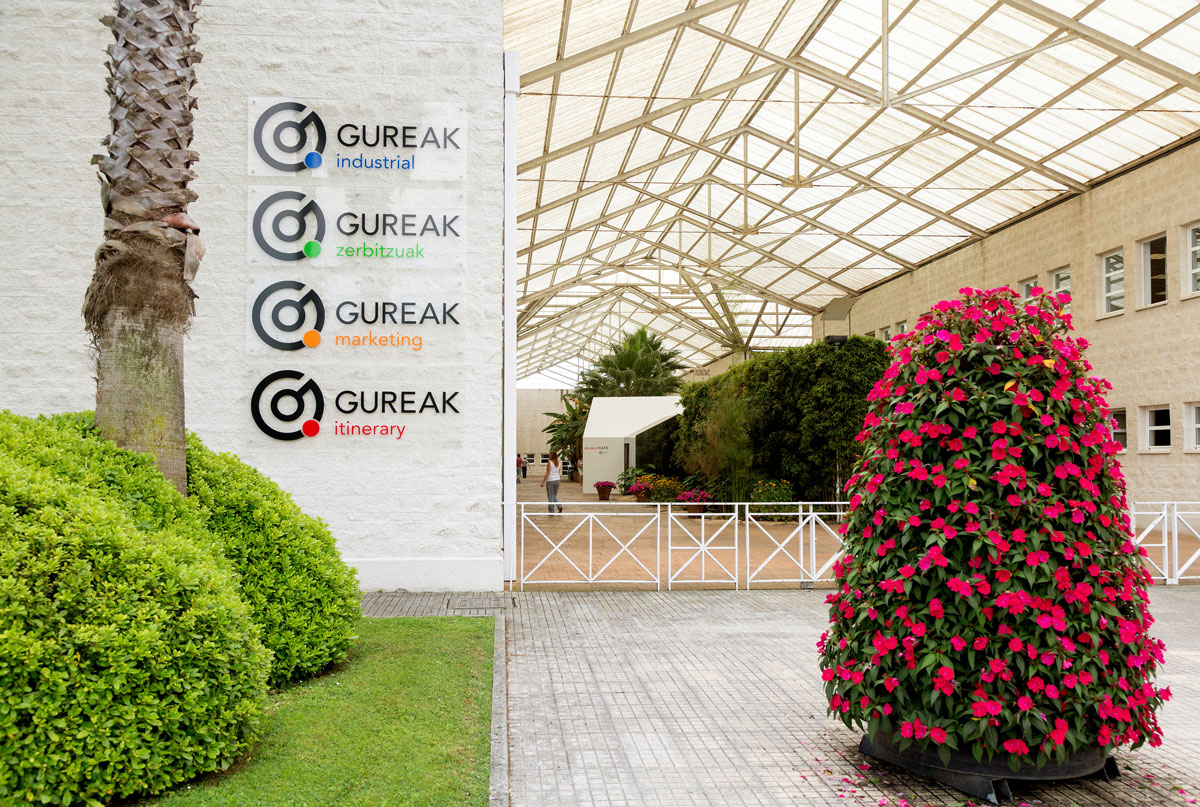
The company Gureak was established in 1975 in Gipuzkoa with the objective of creating job opportunities for people with disabilities, prioritizing people with intellectual disabilities. Iñigo Oyarzabal is the CEO of Gureak: “Diversification and sustainability for job creation and management are key”. Gureak has benefits and all invests in the company itself, as it is not a profit-making company. This is their guarantee for the permanent maintenance of jobs: “We work for the people who need the most support,” added Oyarzabal.
The main center of Gureak is in Donostia-San Sebastian, the facilities are spectacular: direction, administration and marketing. It also has two workshops for 700 workers. In Gipuzkoa, with 5,500 workers, the workforce is 3,400. One of the largest companies in the territory. His first step in the industry was the establishment of workplaces close to home. Currently there is an industrial workshop in all counties. Gureak’s iconography reflects its essence, its “pellets” are peculiar in the territory. Since 1987, it has opened new areas, called Marketing, Services and Itinerary.
Professions by area
Gureak has created its own workshops and developed technologies: “We are working on assembly in the industry, integrating people with intellectual disabilities into working with people with other disabilities. Gureak buys material and transforms all the product: plastic, wiring and electronic. It sells part of the integral concept of production. In this way, we compete in leading sectors such as automotive. For example, the current Volkswagen Golf or Passat carry in their headlights the wiring made in Gureak.”
In hospitality, gas station, gardening, industrial laundry as well as in the service of coffee vending machines (Vending). Gureak made a spectacular leap into the services sector in the 1990s: “We managed to get the worker out of our walls and sensitize society, it was a tremendous change. As work becomes more diversified, we have created different jobs, depending on people’s capacity.
In the 1980s, the first activity that started beyond the workshops was marketing. The communication of the savings banks of the time took care of the printing of extracts from client accounts, the introduction of cards into the skin, the treatment of databases, the dispatch… “Since then, this market has been completely transformed and in Gureak we have taken the opportunity to innovate and adapt online marketing or in the development of contact center, expanding new activities with people with disabilities”.
“What is our customer? People. And in order for people to have jobs, it is essential to carry out a work itinerary. We gave this new framework our own name: Itirenary. Since a person asks for work, it has all our ways to open up, it is our internal client: worker and person.” The other three areas are given the same value, which is why the importance of Itinerary. From orientation, training and adaptation, the Itinerary is Gureak’s axis and ensures people’s trajectory.” Composition and
model of the human team
In order to work in a Special Employment Centre, the person must be accepted 33% of the disability. The Deputy performs the physical, intellectual, sensory or visual examination. 1,495 people with intellectual disabilities in Gureak. 1,357 physical disability. 1,026 mental illness. 901 sensory impairment. People without disabilities are 358. To work in Gureak, that's the certificate. “From the very beginning we keep your disability certificate and take into account the capabilities of each person. As we have diversified departments, we are more likely for each person, depending on their abilities and desires, to be in different areas of work”. The shift from industry to services was fundamental, supported by marketing. Gureak’s trajectory has been, above all, a learning path.”
Social perception
Following the 2007 crisis, there was widespread misperception of special employment centres: “He started talking about unfair competition. The problem of the other Gipuzkoan companies was not Gureak, but they did not sell. We have clear criteria. What do we have aid? Yes. But it's only through direct taxes that we return more to society than we receive from public money. Moreover, a center like this can be set up by anyone, anyone can take the path of positive discrimination and employ people with disabilities.”
Iñigo Oyarzabal (Gureak):
“Diversification and sustainability for job creation and management are key, both axes of evolutionary development”
Oyarzábal goes on like this: “The distorting element is another: these people should be working in ordinary employment, in normal businesses. We worked on that, 47 people were employed in ordinary businesses last year, but we always worked on the disadvantage. We want the workers of our company to move to ordinary employment, fulfilling the transit provided for by law. However, people with disabilities still need help. The objective of the Gureak Group is to ensure the development of employability: moving from occupational work to employment, rising to the professional category. Ordinary companies should provide as much support as our company offers.”
Quality of employment
Who decides whether a job is of quality? Each person decides – these are the words of Gureak’s director –. There are people who feel safe and satisfied in the workshops and don't want to go to services or normal jobs. They want to be in their workshop, so that is a personal decision. This is the choice everyone needs, including the one with a disability. The importance of Gureak Itinerary is enormous for that. A person from the moment he enters Gureak does courses, is in the industrial sphere, then if he wants to dedicate himself to gardening, because we will try to move him there. It's about working the route. Every day we show that the development of people with disabilities and the competitiveness of the market can be guaranteed simultaneously. ‘Charity’ is a matter of the past. Otherwise we would not be making Audi car parts. We also work on the basis of the quality service and competitiveness that is in the market, otherwise we will not keep it.”
Do we know what Gureak is?
“People have come to this headquarters and say with astonishment: ‘Look, I didn’t imagine.’” However, they say that they do the job of transmitting the project well to Gipuzkoan society. It remains a great stigma. Those affected by Down syndrome, hidden in their homes for 40 years, have today occupied a prominent place in the local economy. A tremendous qualitative leap has been made to start for these people and for society in general. To represent: 1% of the active population of Gipuzkoa rises in the morning to go to work at a Gureak activity: “This change is a result of the work we have done together with the local administration at the business level. All of this has become a model of Basque inclusion. A benchmark model in Europe that justifies that the unemployment rate of people with disabilities in the Basque Autonomous Community is half that of the State (CAPV is a rate of 15.9%, compared to 31% of the State)”.
Company Sales Legaia (KL): 940 workers
The company KL has its main plant in Hernani and 12 workshops in the counties of the territory. It has been around for over 30 years: local, independent initiatives linked to personal initiatives, municipalities and parishes, and especially to physical disability. Pablo Núñez is the KL Director-General: “At first Sales and Legaia were two teams. This means that they have been emerging from village to village. Over time, they have been merging. The aim is to include people who are left out of the world of work, those who need it most. Because looking for job opportunities, offering quality work to these people at risk is not an easy job.” However, these are your strengths: “We are a non-profit organization, we invest everything for the future, and the property belongs to the workers. That is our uniqueness and the company’s main guarantee of sustainability.”
Of the 940 employees, 605 are members or shareholders. They have recoverable capital. KL is an outstanding industrial activity. Force is getting bigger and bigger. Its customers are high-level companies. They offer a comprehensive service throughout Gipuzkoa: “Apart from the 940 people employed, we work training, orientation and destination in the itirenary insertion. Both for us and for ordinary employment. At the moment we are tracking 50 people, they do not belong to our company, but within this training they receive help to integrate,” explains Pablo Núñez.
Pablo Núñez (KL): “The success of these companies has been the result of the public-private partnership between the administration, institutions and the CAPV company”
The number of people with disabilities is 900. Among them, those with severe disability 334, especially those with mental illness. Only 40 people lack disability accreditation, 96% of respondents are certified. It is not usual that in such a large company the percentage is so high.
80% of KL’s revenue comes from work done to customers. The aid is 20%. “What comes back for those aids we measure well. In 2010, for each euro received by KL, it returned €3.33 for economic income, taxes and pensions to the company.” The KL tip is a company. It contributes to the industrial fabric in the sustainability of the territory and its social values and strong cohesion are known.
Gureak and KL: Learn to merge
Gureak and KL are companies that have been formed separately in the evolution of society. Atzegi, Gureak's precursor, started working on intellectual disability where: “The two companies have the same mission. Although we have worked separately we have been able to converge, at the local level, in global and global decisions our perspectives and decisions agree, we have a good relationship to achieve the goals.”
The 2007 crisis damaged the KL. In 2008, no one was talking about the crisis, but our turnover dropped by 30%. “The fact that KL belongs to everyone helped to overcome the situation. We took measures, without drastic cuts, for an ERE (Employment Regulation Dossier) for all. Without sinking, suffering, passing the situation with dignity and solidarity, we do not receive any exceptional ‘help’. We make complicated, committed decisions. That is what sets us apart from others. We share criteria and make decisions together, winning but profiting from the benefits, that’s what we are, that’s our strength and in difficult times, the key.”
According to Pablo Núñez, the success of these companies has been the result of the public-private partnership between the administration, institutions and the company of the CAV: “We’ve been concentrating what the isolated workshops were, gathering strength. Learning from the industrial fabric, we've become aware, but the ordinary company has also been able to understand our role. That is what has brought us – thanks to the Basque model of inclusion – to the point of ratification at European level, we have demonstrated that the employment rate and social cohesion can be achieved.”
KLko langileen bost ordezkari sindikalak eta Administrazio Kontseiluko partaideak dira. Diego Bravo Barquilla (CCOO), Edurne Castro Etxaburu (LAB), Maite Rodriguez Lekue (ELA), Jesús Galdaera Zubieta (ELA) eta Mª Dolores Jimenez Martinez (CCOO). Hona beren ikusmolde batzuk.
Langile ezgaituen estigma: Askok ez du esan nahi desgaitua denik. Enpresa arruntetan ariko balira agertzen dute beren burua: “Desgaitasun bat dugulako zertan joan behar dugu enpresa berezi batera?”. Rodriguezek aitortu digu berak ez zuela KL enpresara etorri nahi. Orain hauxe dio: “Mundu oso emankorra da gurea, lanean zein giza harremanetan”.
Langileen indarra: “KLn langileok indar gehiago dugu Gureaken baino” diote bostek. Gure soldatak baxuak direla? Egia da. Baina, guk krisia garaia nahiko ongi gainditu genuen. Enpresa arruntarekin alderatuz, krisia hobeto eraman dugu, gure BPG eta soldata igoz joan dira urtetik urtera”.
Ezgaitasunak landu beharra: “Sindikaliston helburuetako bat langile bakoitzaren ezgaitasunaren araberako lanketa espezifikoa hobetzea da: beste enplegu batzuetatik –eritasuna edo istripu bat dela eta– heldu dira hona, beren lanetan gaitasuna zuten baina ‘beren ezgaitasun berria dela eta’ egokitu behar dute lan-postura berrietara”. Hainbat lan ongi aztertu behar izaten da, ezgaitasunak mugatzen baitu errendimendua hobetzea.
Ezgaituaren Gizarte Integraziorako Legea (LISMI gaztelaniaz): “Administrazioak ez du LISMI delako legea betetzen. Legeak dioenez enpresa arruntetan langileen %2 ezgaituak izan behar du, baina hainbat enpresak nahiago du legea ez bete eta isuna ordaindu. Enpresek ez dute langile desgaitua nahi”. Galdaerak dioenez, “legea beteko balitz, zentro hauek ez lirateke izango”. Zentro okupazionalak izango lirateke. Okupazionaletan langileen %80k desgaitasun mentala dute. Bravok: “Legeak langileentzako trantsitu aldi bat aurreikusten du enpresa arruntetara pasatzeko. Administrazioak enpresek legea betetzeaz gehiago arduratu behar luke. Ez Jaurlaritzak ez Diputazioak ez dute beren eremuan legea betetzen, eta ez dute desgaitasunak dituzten langileen trantsitua garatzen. Enpresa batzuek diote egiten dutela, baina enplegatzen dituztenak azpikontratua daukate, eta ez dute kobratzen besteek bezala”.
KLren ekarpena: “Jendeak gure enpresa ezagutzen du, baina ez barnetik. Areago, hemen hasten diren langileak harritzen dira ekoizten dugun kalitatea ikusita” dio Rodriguezek. Bravok hauxe gehitu du: “Jendarteko sektore batek uste du, desgaituak garenez, ez dugula besteen modura ekoizten, beraz, enpresa arruntak gurea salbatzen ote duen pentsatzen dute askok. Ez da batere horrela. Galdaera ez dator bat uste horrekin: “Herri guztietan gurekiko ezagutza eta kontzientzia ez dira berak. Ni Aretxabaletako naiz eta bertako langileen familiak guregandik hurbil dira”.
Menpekotasunetik gero eta libreago: Lantegi hauek ez dute ekoizpen propiorik, azpikontratatuak dira. Hala ere, lana gero eta hobeto egiten ari dira eta inoren menpekotasunetik gero eta libreago daude. Lan arduratsua medio, berritzen eta kualifikatzen ari dira. Hartara, enpresa kontratatzaileei gero eta gehiago exijitze diete, horrek lan egoeraren kalitatea ere hobetzea dakar.
Elkartasunean aritzea: “KLn eritasun edo desgaitasun berantiarrak izan dituzten langileak ere badira. Horiekin harremanak konplikatuagoak dira. Enpresa arruntean aritu diren langile desgaituak gurera etortzen direnean, lan prozesu konplexua izaten da”, diote bostek. Jimenezek dioenez: “Hasiera ez da erraza. Elkarbizitza landu behar da. Osasungintzako profesionalak inguruan izatea ongi da, baina batez ere, laguntza lankideok eman behar diegu. Desgaitasun sakonagoa dutenek beste norbanakoaren konfiantza are handiago behar dute: elkartasuna, maitasuna, animoa begi onez tratatuak izatea” .
Eneko Leunda (ELA) eta Xabier Izagirre (LAB) langileen ordezkariak dira, Tolosako eta Donostiako tailerretako arduradunak: “Desgaitasun intelektuala duten langileekin lan egitea ez da erraza”, diosku Leundak. Izagirrek, berriz, “azken hamabost urteetan gaixotasun mentala duten kopurua handitu da. Adibidez, goi-mailako ikasketak izanik ere, drogan erori direnek depresioa dute”.
“Guk langile guztiok ditugun eskubide berberak defendatzen ditugu, baina, langile hauetako bakoitzak berezitasun bat dauka, pertsona bakoitzaren arazoak entzun behar ditugu, orduan, ez dira arazo laboralak soilik, kanpoan dituzten arazoak ere entzun behar ditugu. Hau da, ‘psikologo’ lana egin behar dugu”, diote biek.
“Gureak enplegu zentroa okupazionala zen hasieran, berezia, tailer babestuak ziren. Baina oraindik ere 5.500 langileetatik 1.000k ez daukate kontraturik. Hazkundea izugarria izan da. Eredu berri bat gestionatu beharko litzateke, egoera hobetzeko. Kabinete medikua ez litzateke gaizki langileen produktibatea hobetzeko, pertsonen laguntzailea badago, baina hobetu beharra dago”, gehitzen du Izagirrek.
Enpresek eta administrazioak Desgaituaren Gizarte Integraziorako Legea betetzen ez omen dutenez (LISMI gaztelaniaz), desgaitasuna duten langileek zentro berezietara jotzen dute: “Zentro hauek gero eta handiagoak dira, igarotzea edo trantsitua ez da behar bezainbeste egiten. Enpresa arruntek ez dute kontratatzen pertsona ezindu hauek, azpikontrata baten bidez enplegatzen dituzte. Eta zein preziotan egiten dugun lan?, bada, beraiek jartzen duten horretan, ahalik eta baxuen. Hori da benetako arazoa. EAEko enpresek legea beteko balute, Gureak izango litzateke hasierakoa: zentro okupazionala eta hauekiko heziketa, agian, bestera garatua”, diote biek ala biek.
ELA eta LABeko ordezkari hauen esanetan “enpresek legea bete beharko lukete, baina horretarako LISMI delakoa gaurkotu beharko litzateke. Gureakek errekurtsoak ditu eta lan oso ona egiten du, oso lan kualifikatua, gero eta gehiago, eta betiko aitzakia entzuten da: ‘Merkatua oso gaizki dago’. Gureak enpresa potenteentzat ari da, automozioan, prozesu gero eta sofistikatuagoak lantzen dituzte, baina etekinak beste enpresentzat geratzen omen dira. “Langile hauek pozik daude lanarekin, baina denek nahi dute gehiago irabazi. Hori guri adierazten digute. Badakite inguruan irabazten dena, eta kontratua dutenek badakite ‘besteetan zenbat irabazten duten’. Euren aspirazioa normala da, guk halaxe dugu eta”.
“Gureak den bezala administrazioarentzat pagotxa da. Izan ere, bere garaian Atzegik Gureak sortu izan ez balu, administrazioak sortu beharko zukeen, eta horrela izan ezean, seguru kostua askoz handiago izango zen: gu biok funtzionario ginateke, lan publikoko soldatapekoak”.
Gipuzkoan bide onuragarria egin omen da, baina biek uste dute “ondo ezarritako sistema publiko batek enpresa hauen egoera hobetu beharko lukeela, instituzioek beren gain hartu balute, jende honen egoera bestelakoa litzateke”.
“Guk kritika Gureaki baino Eusko Jaurlaritzari egiten diogu, bera da baldintzak eta eskubideak bermatu behar dituena. Jaurlaritzak legea betetzen ez duen enpresari isuna jarri beharko lioke. Traba hor dago. Egiari zor, soldata aparte utzita, gainerako baldintzak onak dira: oporrak eta tratua, kasu. Baina hauek guk bezala, nahi dute gehiago irabazi, bikotearekin bizi pisu batean, eta ezin dute”.
Betsaide enpresan gertatu da, 08:00ak aldera. Urtea hasi denetik gutxienez bederatzi behargin hil dira.
2024ko laneko ezbeharren txostena aurkeztu dute LAB • ESK • STEILAS • EHNE-etxalde eta HIRU sindikatuek aurtengo otsailean. Emaitza larriak bildu dituzte: geroz eta behargin gehiago hiltzen dira haien lanpostuetan.
Jakina da lan ikuskariak falta ditugula geurean. Hala ere, azken egunotan datu argigarriak ematea lortu dute: lan ikuskaritzaren arabera, EAEko enpresen %64ak ez du ordutegien kontrolean legedia betetzen. Era berean, lehendakariordeak gaitzetsi du, absentismoaren eta oinarrizko... [+]









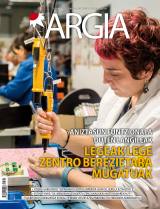

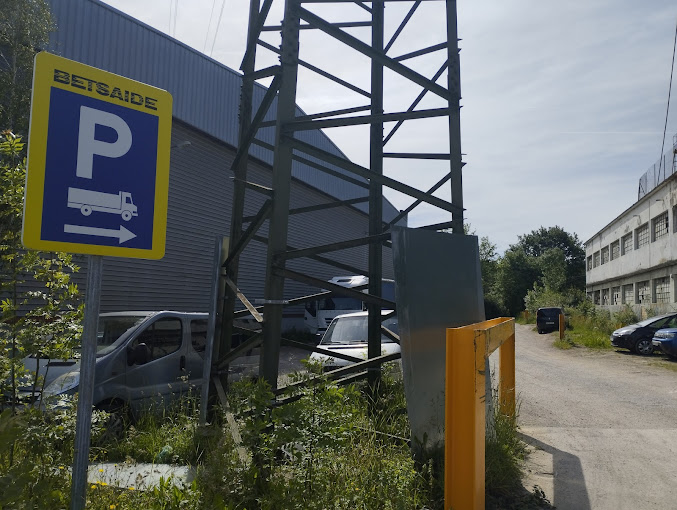
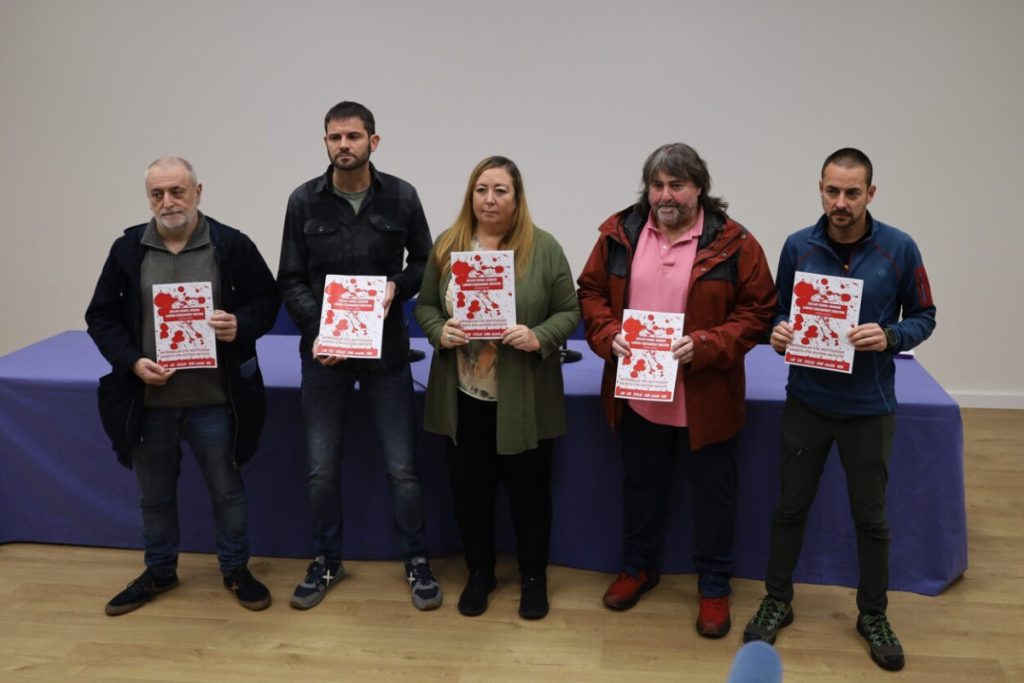

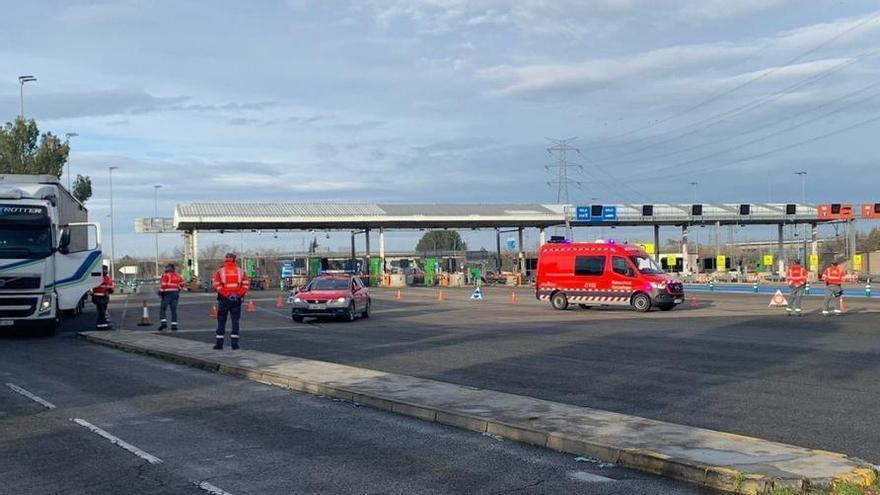
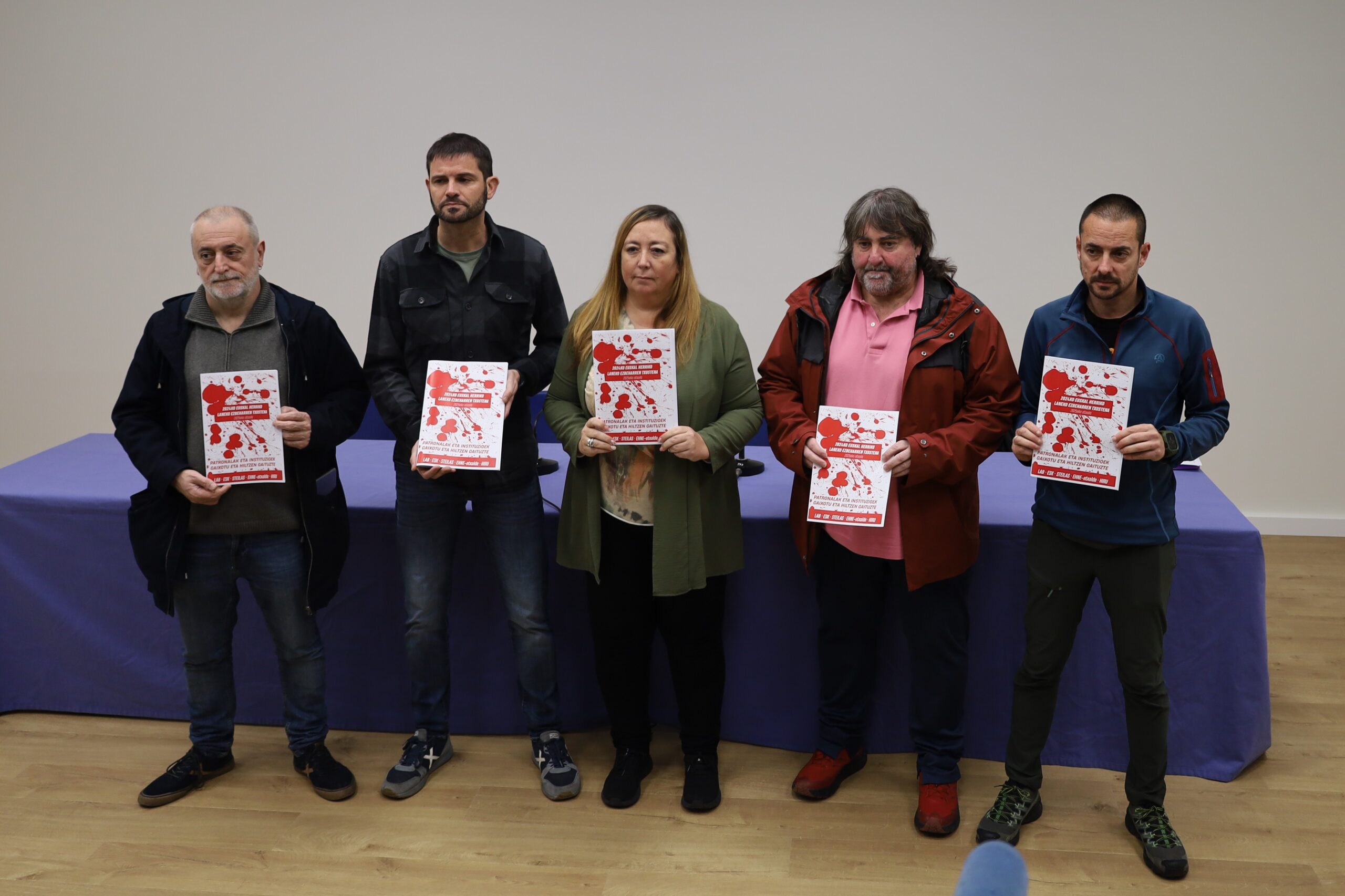
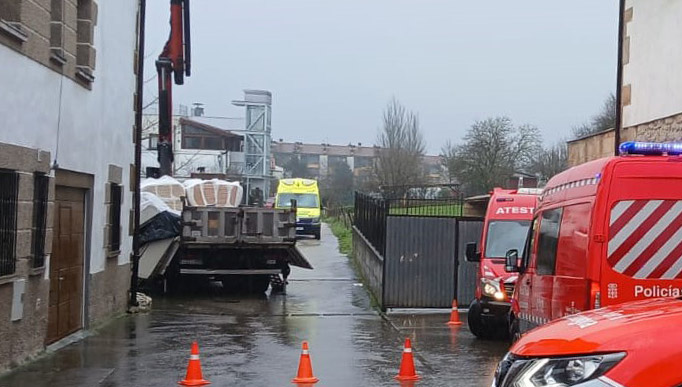

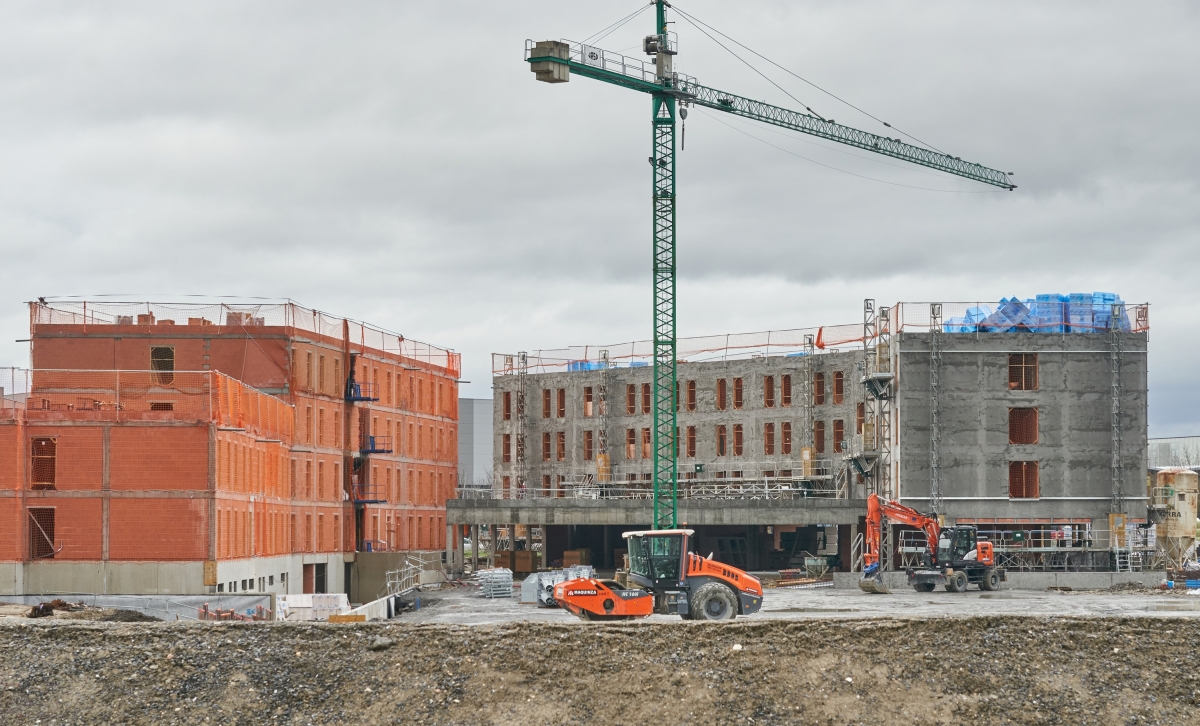


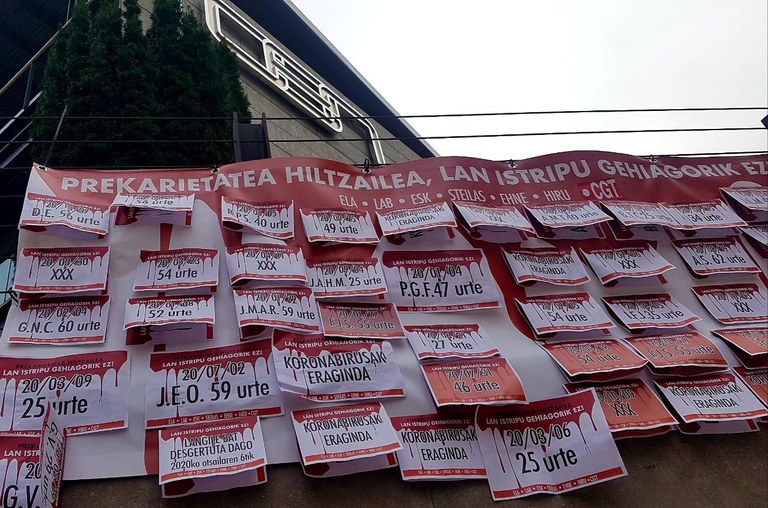
-(1).jpg)


